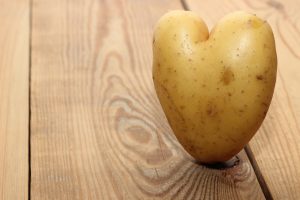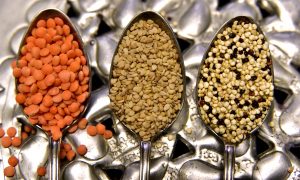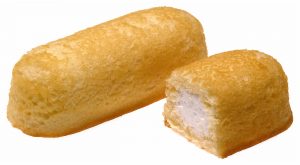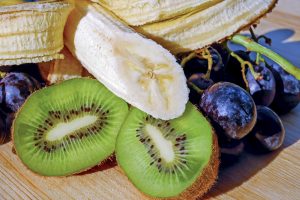Are Plant Based Diets High in Carbs
If you're new to a plant-based diet, understanding the intake of carbohydrates can be confusing. The idea of eating vegetables and fruits is usually about walking away from carbs. So can you eat carbs on a plant-based diet?
It largely depends on what kind of carbs you want to eat and your fitness goals. If you're trying to avoid carbs while following a plant-based diet, it can get tricky. This is because most low-carb diets heavily rely on meat.
Similarly, plant-based foods can also get carb-loaded if you're not mindful of the nutritious content. In other words, it just comes down to finding the right balance for carbs while avoiding non-vegetarian food items.
You can eat carbs on a plant-based diet if you're not strictly following a low-carb diet. If you've switched to the greens to shed some pounds, choose the ones with the lowest number of carbs. It's as simple as that!
Carbs are not necessarily bad, even though they are portrayed to be in most diet and fitness plans. In fact, many carbs are quite good. Most importantly, you need some in a decent amount for a wholesome and healthy diet.
What are Carbs?
Carbohydrates are made from, you guessed it, carbon and hydrogen, mainly. These turn into glucose and raise our blood sugar level. Similarly, their lack thereof can lower blood sugar.
Most carbs are found in plant-based foods, as well as starch and sugars. Foods that are a common source of carbs in your diet include fruits, vegetables, milk, grains, seeds, nuts, and legumes. In addition, processed foods are also packed with carbs.
On most of your food products, you'll see Net Carbs in the nutrition chart. However, this is usually not the whole amount of carbs as it excludes the fiber content. Nevertheless, what you should be looking for is the glycemic index.
The Glycemic Index of foods containing carbohydrates tells their ability to raise blood sugar. For instance, the higher the glycemic index, the stronger the effect on your blood sugar. Therefore, most weight-loss diets throughout history have focused on cutting foods with a high glycemic index.
You may not find this information on the food packaging. So this is something you need to study and have the information at hand before you hit the supermarket. Therefore, you want to focus on carbs with a low glycemic index.
Whole vegetables and fruits generally have a low glycemic index. As a result, they do not substantially increase your blood sugar and activate insulin. This is one reason why a plant-based diet, in essence, is a low-carb and weight-loss diet.
3 Types of Carbs
Carbohydrates can be divided into three distinct types:
Sugar
Sugars are also termed as simple carbohydrates and include glucose, fructose, and galactose. These are monosaccharides, as they are a single molecule.
When two of these join, they create disaccharides. For instance, the table sugar (sucrose) is a disaccharide. When these molecules go into your body, they are pretty easy to break.
Starch
Starch contains a complex chain of molecules, giving it the name polysaccharide. These contain long chains of glucose, which can, at times, be hard for the body to break.

Processed flours are usually rich in starch. As a result, they are strictly prohibited in weight-loss diets.
Fiber
Fiber is often mistaken to be the opposite of carbohydrates. However, it really is just a type of carbohydrate. Fibers are in the cellulose of plants and can either be soluble or insoluble.
This type of carb is not so easy to digest. As a result, fewer calories end up in your body. In addition to that, fiber can also improve digestion and metabolism.
Since it does not contribute to calories, you would most often see it listed separately on the nutrition chart.
Good Carbs vs. Bad Carbs
Most nutritionists and fitness experts see carbs essentially as two types: the good carbs and the bad carbs.
Good Carbs
What you need in your diet regardless of your fitness goals are good carbs. For instance, fiber is what you would call a good carb. These carbs will make your diet more balanced, but also help regulate the digestion of other food groups.

So what are good carbs?
- Whole grains
- Whole fruits
- Vegetables
- Tubers
- Legumes
- Seeds
- Nuts
As you can see, most plant-based sources rich in carbs are rich in good carbs. Therefore, when you follow a vegetarian diet, you're mostly consuming good carbs that have a positive effect on your health.
Generally speaking, if it's a whole food, it probably contains good carbs, regardless of the actual carb content.
Bad Carbs
Most processed foods contain carbohydrates that are simply bad and can make you fat. Also, these carbs can increase the production of insulin in your body, which is the main culprit in weight gain. Since these break down into smaller molecules fast, you're likely to feel hungry faster.

So what are bad carbs?
- Refined grains
- Added sugars
- Processed snacks
- Sugary drinks
- Fruit juices
- Ice cream
- Chocolate
Most of these carbs do not come from plant-based sources, so you would be avoiding them anyways. Therefore, as a simple principle, avoid eating processed carbs. They have been refined into simpler carbs, which easily get broken in the body.
If you consume these bad carbs, it'll nullify the positive effects of other plant-based foods you're consuming. Processed foods and fast food, in general, contain a lot of these so-called bad carbs. As a result, they are often associated with obesity and cardiovascular diseases.

Nevertheless, there are other factors at play, as well, when it comes to obesity. As pointed in this video at NutritionFacts.org, the overall calorie intake increased dramatically after the 1970s. It went as high as 3900 calories a day, mainly due to processed foods that are rich in bad carbs.
Why are Carbs Healthy?
Despite what you hear from every other YouTube video about carbs, they are essential for a healthy diet.
Give Us Energy to Thrive

Out of all the seven major nutrients, carbohydrates serve as the main source of energy. The complex molecules, when broken down into smaller and simpler molecules, release energy.
The glucose goes into your bloodstream with the help of insulin. Moreover, this glucose is the fuel for your body. Therefore, your body needs this energy for all bodily functions within as well as all the movements.
Whatever glucose is left is stored in the liver and muscles, mainly as fat. In other words, it's the extra carbs that turn into fat, not all the carbs that you eat. Therefore, if you eat carbs moderately, you'll give your body the energy it needs to function without getting fat.
Help Us Maintain Healthy Weight
Eating good carbs can have a very positive effect on weight management. Fruits, vegetables, and whole grains, in particular, help your body keep an optimal weight. This is mainly because of fiber, which is difficult to break. Consequently, it makes you feel fuller even when consumed in small amounts.
As opposed to the popular opinion that carbohydrates simply increase weight, good carbs in moderate amounts help you control it.
Help Us Prevent Disease
There are a number of ways carbs can prevent diseases, especially cardiovascular diseases. Such diseases are primarily caused by bad diet and obesity. Therefore, with good carbs, you can get the required energy without consuming any extra calories. That helps you stay in shape and keeps your heart good as well.
A study published in The Lancet Public Health Journal found that those who eat carbohydrates moderately have a lower mortality rate. In comparison, those consuming too much or too little of the carbohydrates have a higher mortality rate.
There's a fine line between what is moderate and what may be too low or too high. As long as you understand this fine line, you can consume carbs and protect yourself from life-threatening diseases.
How Many Carbs Can I Eat a Day?
It's not healthy to cut out carbs completely out of your diet. That said, it's equally important to keep the number of carbs you consume in a day in check. According to the US Department of Agriculture, carbohydrates should make up the largest part of your daily calories.
The Dietary Guidelines for American Eighth Edition recommends that 45% to 65% of your daily calories should be from carbohydrates. In other words, it should be between 225 to 325 grams on a daily 2000-calorie diet.
This is a general guideline for a balanced diet containing all essential food groups. However, this could vary based on your fitness goals. For instance, if you're trying to lose weight, you might want to lower the carb intake.
Keep this guideline from USDA as a benchmark of your daily carb intake. Moreover, you can go lower than this range, but not higher.

Firstly, the good thing about a plant-based diet is that it keeps your carb consumption in check. Secondly, carbs, like whole grains , give you the energy you need and help with digestion without increasing your weight.
A plant-based diet is also good for those trying to lower their weight through cutting carbs. When you switch to healthy carbs found in vegetables, fruits, grains, and legumes, you cut out fat-increasing carbs. As a result, the carbs you consume have a healthy impact on your body.
People who follow plant-based diet plans to lose weight see better results without compromising their health and immunity. There are success stories of people shedding hundreds of pounds sticking to such diet plans. For instance, the Forks Over Knives program allowed this man to lose 140 pounds over the course of two years.
How Many Carbs In… (A Quick Reference Food List)
This is a quick reference list to understand the number of carbs you get from different foods. However, all of these are plant-based food, so the number is comparatively lower than processed carbs. Also, these values are based on USDA Food Data Central. Moreover, knowing the number of carbs in your food can help you manage your overall carb intake much better.
| How many carbs in a banana? | 23 grams/serving* |
| How many carbs in an apple? | 14 grams/serving |
| How many carbs in white rice? | 28.17 grams/serving |
| How many carbs in brown rice? | 23 grams/serving |
| How many carbs in potatoes? | 17.49 grams/serving |
| How many carbs in sweet potatoes? | 20 grams/serving |
| How many carbs in corn? | 18.7 grams/serving |
| How many carbs in peas? | 14 grams/serving |
| How many carbs in whole wheat bread? | 43.1 grams/serving |
| How many carbs in buckwheat flour? | 70.59 grams/serving |
| How many carbs in beetroots? | 9.56 grams/serving |
| How many carbs in carrots? | 10 grams/serving |
| How many carbs in cucumber? | 4 grams/serving |
| How many carbs in cauliflower? | 5 grams/serving |
| How many carbs in oranges? | 12 grams/serving |
| How many carbs in grapefruit? | 8 grams/serving |
| How many carbs in blueberries? | 12 grams/serving |
| How many carbs in grapes? | 18 grams/serving |
| How many carbs in an avocado? | 9 grams/serving |
| How many carbs in cashews? | 26 grams/serving |
| How many carbs in pistachio? | 18 grams/serving |
| How many carbs in sunflower seeds? | 20 grams/serving |
| How many carbs in peanuts? | 16 grams/serving |
| How many carbs are in soybeans? | 30 grams/serving |
| How many carbs in kidney beans? | 22.98 grams/serving |
| How many carbs in chickpeas? | 61 grams/serving |
| How many carbs in oats? | 67.7 grams/serving |
| How many carbs in quinoa? | 20 grams/serving |
| How many carbs in lentils? | 20 grams/serving |
| How many carbs in chia seeds? | 42 grams/serving |
*The serving size for each food listed is 100 grams
Conclusion
Carbohydrates can be tricky to figure out because of the bad rep they get with diet and fitness plans. However, you can, and you should consume carbs on a plant-based diet.
One of the many benefits of plant-based diets is that it includes those good carbs. Above all, these carbs will cover the daily recommended intake of carbs to give you the required energy. However, these carbs will not make you fat.
Don't let anyone tell you that you need to cut out all your carbs. That would not be a wise decision. A healthy, well-balanced diet would always value carbs.
You may also like:
Are Plant Based Diets High in Carbs
Source: https://dadgoesgreen.com/can-you-eat-carbs-on-a-plant-based-diet/


0 Response to "Are Plant Based Diets High in Carbs"
Post a Comment